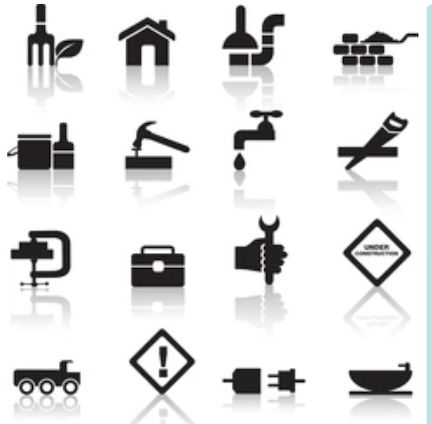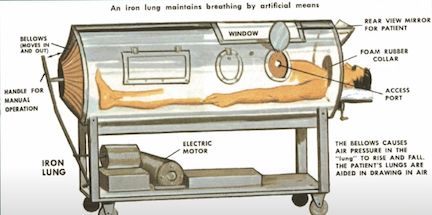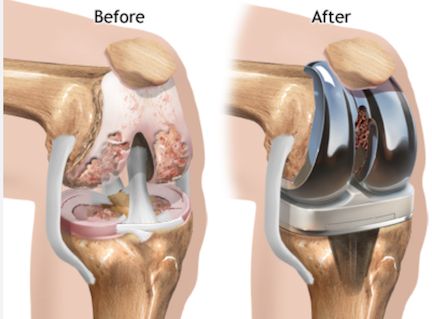It's not WHAT you know; it's WHO you know!
For those of us from average American households, we don't always have the finances to just call a plumber, electrician, auto mechanic, or craftsman everytime something goes amuck in our lives or homes. If we don't have the resources and don't have the necessary skill or knowledge to address the issue, we start knocking on the neighbors' doors to ask for a helping hand. If that neighbor doesn't have the particular skill set either, they'll likely, at the least, "know a guy who knew a guy" who might help.
For example, growing up, I didn't consider my dad to be a particularly religious or spiritual man, but he did teach me spiritual lessons from time to time without even knowing it. For instance, he was a police officer and knew a lot of people, but he wasn't very handy when it came to "fixing things." So whenever the car broke down or a light switch needed to be replaced, his many community contacts ensured that he either knew guy, or would at least know a guy who knew a guy. To that point, he would often say, "It's not what you know; it's who you know."
Even though he couldn't fix a certain problem himslef, he always would know someone who could — and most of the time, it cost him nothing.

It's not what you know; it's WHO you know.
Life is full of challenges that, as mere mortals, we are utterly ill equipped to handle on our own. We lack the wisdom, strength, or even the understanding. That is why we are called to tap into the One Who does!
"And my God will supply every need of yours according to his riches in glory in Christ Jesus" (Philippians 4:29, ESV).
"It is the Spirit who gives life; the flesh is no help at all. The words that I have spoken to you are spirit and life" (John 6:63, ESV).
"I can do all things through him who strengthens me" (Philippians 4:13, ESV).
"Abide in me, and I in you. As the branch cannot bear fruit by itself, unless it abides in the vine, neither can you, unless you abide in me. I am the vine; you are the branches. Whoever abides in me and I in him, he it is that bears much fruit, FOR APART FROM ME YOU CAN DO NOTHING" (John 15:4-5, ESV).
The Holy Spirit Is Our Iron Lung
According to the WHO,
Polio is a highly infectious disease that attacks the nervous system and can lead to ... respiratory paralysis, and in some cases death. ...
In the late 19th and early 20th centuries, frequent epidemics saw polio become the most feared disease in the world. A major outbreak in New York City in 1916 killed over 2000 people, and the worst recorded US outbreak in 1952 killed over 3000.
Many who survived the disease faced lifelong consequences. Deformed limbs meant they needed leg braces, crutches or wheelchairs, and some needed to use breathing devices like the iron lung, an artificial respirator invented for treatment of polio patients.
By the mid-20th century, the poliovirus could be found all over the world and killed or paralysed over half a million people every year. With no cure, and epidemics on the rise, there was an urgent need for a vaccine. ...
[It was not until] the early 1950s, the first successful vaccine was created by US physician Jonas Salk.
That vaccine came too late for Paul Alexander.
Sky News reports:
Paul Alexander, widely known as "Polio Paul," contracted the viral disease [Polio] in the summer of 1952 when he was six years old and was left paralysed from the neck down. He was rushed to hospital in Texas - and woke up inside the metal cylinder where he would spend the rest of his life. ... An update on his GoFundMe page by its organiser Christopher Ulmer reads: "Paul Alexander, 'The Man in the Iron Lung', passed away yesterday [March 11, 2024].

An iron lung is a type of negative pressure ventilator (NPV), a mechanical respirator which encloses most of a person's body and varies the air pressure in the enclosed space to stimulate breathing. It assists breathing when muscle control is lost, or the work of breathing exceeds the person's ability.
Polio Paul, as he was known, became literally dependent upon a machine -- an "iron lung" -- to act as a giant bellows, raising and compressing his chest -- every day of his life, for 72 years! -- to move life giving air in and out of his lungs. Without it, he was helpless, and would ultimately be lifeless.
The Greek word, pneuma occurs hundreds of times in the New Testament. It can mean "breath" or "wind" or "spirit." In context, it is most frequently used to refer to the Holy Spirit – the Third Person of the Trinity – who regenerates the believer unto newness of life, and then takes up residence and dwells within, sealing the believer for the day redemption (Ephesians 1:13-14). At the moment of salvation, the Lord literally "breathes" new life into us "through the washing of regeneration and renewing of the Holy Spirit" (Titus 3:5) causing us to be "born again" (John 3:5).
The Holy Spirit is to our spiritual lives what that Iron Lung was to Mr. Alexander. We can no more live spiritually without His life-giving power than Polio Paul could live without his Iron Lung. Without Him, we are helpless, and would ultimately be lifeless.
"Then the Lord God formed the man of dust from the ground and breathed into his nostrils the breath of life, and the man became a living creature" (Genesis 2:7, ESV).
"The Spirit of God has made me, and the breath of the Almighty gives me life" (Job 33:4, ESV).
Step Confidently Into Newness of Life
According to the BJSM:
"Knee injury accounts for 41% of all sports injuries. One fifth of them involve the anterior cruciate ligament (ACL). Other injuries include meniscus tears, posterior cruciate ligament tears, articular cartilage damages and avulsion of ligaments and tendons."
To address that staggering number of knee injuries, it's estimated that there are over 800,000 total knee replacement surgeries performed each year in the U.S. alone (not including the hundreds of thousands of "lesser" knee repair surgeries).

Post-surgical healing and rehabilitation can take weeks, if not months, to complete. Ultimately, most people see significant improvement. Yet many people report that they are hesitant to use their new knee(s), frearful of trusting it to support them or fearful of re-injuring themselves. For example:
Once I was up early going through my morning routine playing basketball with a friend, when all of a sudden I turned the wrong way, and tore my ACL. After months of rehab, I went out to play light ball just to see if I could do it. I moved around on the court as if I were still injured -- I had not adapted to a healed ACL!
The coach (and my doctors and therapists) told me I could move, but mentally I was afraid to move the leg. subconsciously controlled by my fear of getting injured. I went into protection mode because fear had gripped me.
I was protecting, not realizing or acknowledging that I had a new knee.
We often protect what's been previously injured thinking that it will happen again. I had to ask my self why I was not willing to use the new knee. It's because I had not yet adapted to the new me.
Many of us limp into the Kingdom, bruised, battered, and lame from the brokenness of past lifestyles, sins, and hurtful experiences. We come to Jesus, asking healing for our brokenness, and He is doesn't let us down. In fact, Scripture states, "Therefore, if anyone is in Christ, he is a new creation. The old has passed away; behold, the new has come" (2 Corinthians 5:17, ESV).
God calls us to live in light of our newness of life. Why walk and limp through life when your very being has been made utterly new. "[You] were taught in him, as the truth is in Jesus, to put off your old self, which belongs to your former manner of life and is corrupt through deceitful desires, and to be renewed in the spirit of your minds, and to put on the new self, created after the likeness of God in true righteousness and holiness." (Ephesians 4:21b-24, ESV).
Step out confidently in faith, without fear, to walk in newness of life!
"For God has not given us a spirit of fear and timidity, but of power, love, and self-discipline." (2 Timothy 1:7, NLT).